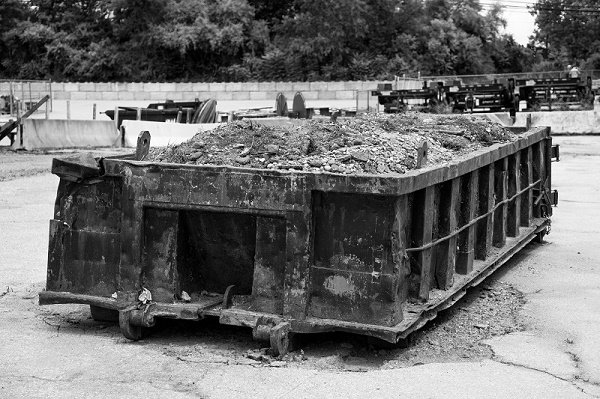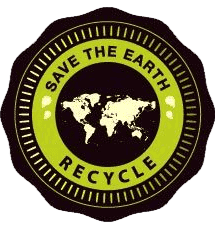The vast majority of people are not dumpster rental experts. Unless you’re a contractor, or you’ve rented dumpsters in the past, you’re probably not an expert on dumpster rental terms.
Fortunately, we are dumpster rental experts here at Eagle Dumpster Rental. With that in mind, here’s an overview of some of the terms we use while providing superior-quality waste management services and dumpster rentals in southeastern Pennsylvania.
Roll-Off Dumpster: We use terms like “roll-off dumpster” interchangeably with “rental dumpster”. We’ll also use terms like “roll-off container” or “roll-off bin”. All of these refer to the same thing: they’re all rental dumpsters.
Roll-Away Bin: Some people call rental dumpsters roll-away bins, roll-away containers, or roll-away dumpsters. Just like with “roll-off dumpster”, it all refers to the same thing.
C&D: C&D refers to Construction and Demolition. If you’re doing C&D work, then you’re either building something or destroying something. Generally speaking, C&D projects are larger projects than smaller renovations or cleanups.
Overage: Overage refers to the amount you’re over the allotted limit. All dumpster rentals come with an allotted amount of space. Some dumpster rental companies measure space by physical area – you can take up so much space in the dumpster, for example. Most dumpster rental companies, however, measure dumpster rentals by weigh. If you’re over these space or weight limits, then this is your “overage”.
Haul or Hauling: When a waste management company talks about haul or hauling, it typically refers to waste hauling or junk removal services. If you want to pay someone to remove junk from your property, then you need to find a junk hauler.
Recyclable Material: Recyclable material typically includes materials made of plastic, paper, cardboard, and similar materials. These materials can be recycled and reused. They’re not intended for the general landfill with the rest of the waste. Some dumpster rental customers are surprised to learn that asphalt and concrete are also considered recyclable materials. Talk to your dumpster rental company to check.
Tonnage: Tonnage refers to the number of tons allowed in your rental dumpster. You might be allowed 2 tons of waste, for example, on top of the weight of the dumpster itself. This is your tonnage.
20 Yard Dumpster: A 20 yard dumpster is a dumpster with 20 cubic yards of space inside. In the waste management industry, we shorten these sizes to “20 yards.” No, your dumpster isn’t going to be 20 yards long. Instead, a typical measurement is something like 22 feet long, 7.5 feet wide, and 4.5 feet deep. 10, 15, 20, 30, and 40 cubic yard dumpsters are all popular sizes. If you rent a 30 or 40 yard dumpster, then they’re often the same length – just deeper than a 20 yard dumpster.

10Y/15Y/20Y Dumpsters: Some companies list their dumpster rental sizes as “10Y dumpsters” or “20Y dumpsters”. This simply refers to the number of cubic yards in the dumpster.
60-40 Dumpster: Some dumpster rental companies offer what’s called a “60-40” rental. With these dumpster rentals, you’re expected to place a mixed load of approximately 60% recyclable material and 40% waste inside.
Flat Rate: If a dumpster rental company charges you a flat rate, then it means you’re paying a fixed price for the rental, assuming you stay within the rules of the rental. If you rent a 20 yard dumpster with a 2 ton weight limit, for example, then you might pay a flat rate of $500. Some dumpster rental companies charge variable rates based on your tonnage.
Skip: In some parts of the world, people refer to rental dumpsters as “skips”. This term is particularly popular in England, although it can also be heard in other Commonwealth countries – like Australia or New Zealand.
Bin Hire: Just like the term “skip”, “bin hire” is the preferred English term for renting a dumpster. If you need to rent a dumpster in Australia or England, for example, you’d be better off typing “bin hire” into Google.
Tipping Fees: Also known as landfill fees, tipping fees are the cost of dumping waste at a local landfill. In the United States, we typically pay a tipping fee of around $50 per ton. Some dumpster rental companies include the tipping fee in the cost of your rental, while others do not. Make sure you understand all fees and charges upfront when you get your estimate.
Clean Load: A dumpster with a “clean load” is a dumpster filled with one type of recyclable material – like concrete, asphalt, plastics, or cardboard. You might fill up the dumpster with a clean load, then take it to a recycling center, before filling up the dumpster with remaining materials.
Mixed Loads: Most rental dumpsters are filled with mixed loads. Mixed loads contain multiple types of recyclables, like wood, cardboard, and plastics. These dumpsters will need to be processed at a sorting facility to separate the different types of recyclables.
MRF: MRFs are materials recovery facilities. It’s the place where mixed loads go to be separated into recyclables and trash.
Contamination: Contamination is any material or substance that makes an item unrecyclable. Food waste on a cardboard box – like pizza on a pizza box, for example – can make it unrecyclable.
E-Waste: E-waste is electronic waste, including computers, cell phones, TVs, printers, etc.
MSW: Municipal solid waste, or MSW, is everyday trash or garbage that is thrown away and taken to a landfill.
Waste Management: Waste management refers to the collective industry of dealing with junk – including trash, recyclables, and other unwanted materials. Many waste management companies – including Eagle Dumpster Rental – offer dumpster rentals, full-service junk hauling, and other waste management services.
Dumpster Bag: A dumpster bag is made from a heavy-duty fabric material instead of steel. They’re suited for smaller renovation and construction projects but may not be ideal for larger projects with heavier junk.
Roll Off Truck: The roll off truck is the vehicle that delivers your roll-off dumpster. Typically, this truck is a heavy duty vehicle capable of fitting a single dumpster on the rear bed.
Waste Corral: The waste corral is the area where dumpsters are stored outside of a business. Many businesses have a special fenced-in area behind their business, for example, where the dumpsters are stored.
OCC: OCC is old corrugated cardboard.
Prohibited Items: Most dumpster rental companies have prohibited items. These prohibited items cannot be placed in your dumpster. Common prohibited items include hazardous materials, toxic waste, appliances, electronics, paint, tires, lead-acid batteries, and motor oil. These items are prohibited in landfills, which means your dumpster rental company is unlikely to accept them. Talk to your dumpster rental company to avoid any potential problems.
Landfill Diversion Rates: The amount of waste that is diverted from a landfill because of effective recycling or waste reduction. The higher the landfill diversion rate, the better.
Compost: A growing number of municipalities are issuing special compost bins – just like your waste or recycling bins. These compost bins contain organic materials – like food scraps and yard waste – that can create a nutrient-rich soil. Compost waste is often separated from recyclables and trash.
Dumpster Rental Permit: Some municipalities require you to apply for a permit when renting a dumpster. Typically, you won’t require a permit when leaving the dumpster on your own private land – like your driveway or front or backyard. However, you may require a permit when leaving your dumpster on the curb in front of your home. If you fail to secure a permit for your rental dumpster, then you may face penalties.
The next time you need to rent a dumpster in southeastern Pennsylvania or elsewhere, you can depend on Eagle Dumpster Rental to provide the best rates and the easiest service. Refer to the glossary of dumpster rental terms above to expedite your rental.
